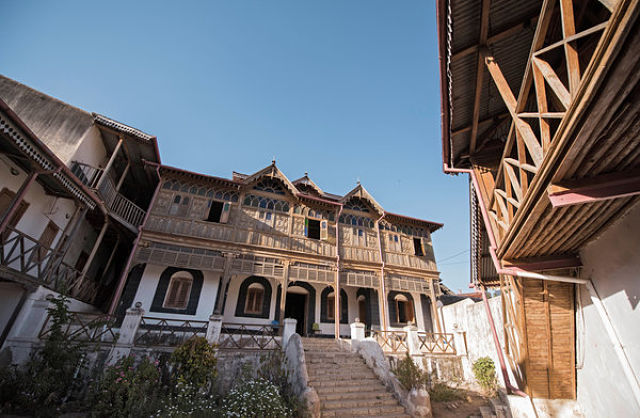 The Arthur Rimbaud Cultural Center, a merchant's home now dedicated to the poet and his time in Harar. (Photo credit Michael Tsegaye for The New York Times)
The Arthur Rimbaud Cultural Center, a merchant's home now dedicated to the poet and his time in Harar. (Photo credit Michael Tsegaye for The New York Times)
By RACHEL B. DOYLE
In December of 1880, the mercurial French poet Arthur Rimbaud entered the ancient walled city of Harar, Ethiopia, a journey that had involved crossing the Gulf of Aden in a wooden dhow and 20 days on horseback through the Somali Desert. Several years before, the author of the prose poems “A Season in Hell” and “Illuminations” had abruptly renounced poetry and embarked on peregrinations that would take him around Europe, Asia, the Middle East and, finally, Africa. At age 26, Rimbaud accepted “a job consisting in receiving shipments of bales of coffee” with a French trading firm in a thriving corner of what was then called Abyssinia.
Then as now, Harar was a market town threaded with steep cobblestone alleys that wind between high limestone and tuff walls. Today those walls are painted with geometric designs in green, white, pink and blue. As one strolls down the narrow, mazelike streets lined with single-story dwellings, the city, fortified and enigmatic, feels closed off. Donkeys carrying bundles of firewood wait patiently for their owners near the crenelated entrances of the city’s historic gates. In the densely populated Old City, there are over 180 mosques and shrines, some dating to the 10th century. Occasionally one comes upon open-air markets where spices, khat leaves and coffee beans are sold in huge sacks.
Read more at The New York Times »
—
Join the conversation on Twitter and Facebook.

























